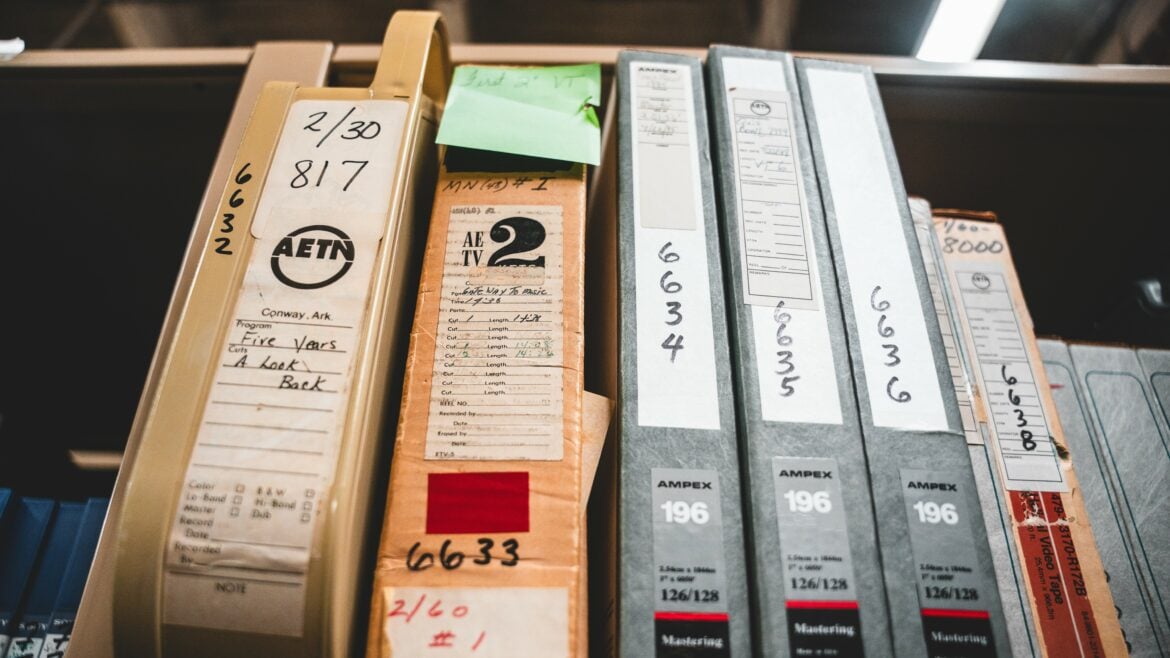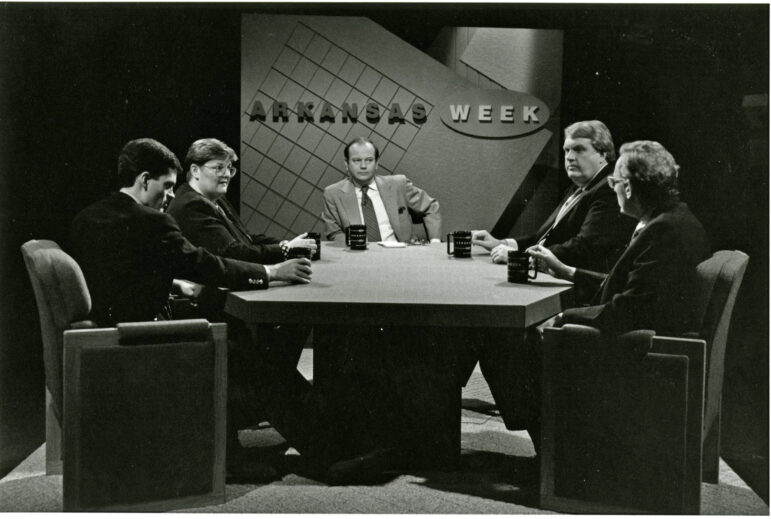Digitization project will preserve decades of archival content for Arkansas PBS

Arkansas PBS
Tapes in Arkansas PBS' library.
A digitization effort underway at Arkansas PBS will preserve more than 26,000 magnetic tapes in the station’s archives, going back to its first hour on the air in 1966.
The tapes also include interviews with the Little Rock Nine, audio of Arkansas Gov. Winthrop Rockefeller’s service for Martin Luther King Jr., and several children’s programs from the 1970s previously thought to be lost. The collection also holds nearly 600 interviews with World War II veterans and 700 interviews with movie stars from Good Times Picture Show, a show that aired on the station for about 25 years.
“It’s five decades of Arkansas history, politics and culture as well as a lot of content that really has national importance as well,” said CEO Courtney Pledger.
Pledger said it’s also likely the station will discover additional material that was previously unaccounted for as the tapes are inventoried and digitized.
“We’re just looking forward to watching a lot of these things and discovering things that we don’t even have any idea are in there,” Pledger said.

The Arkansas Natural and Cultural Resources Council provided a $1.1 million grant for the project, which will take one to two years. Digitizing the tapes has been one of Pledger’s goals since she started as CEO in spring 2017, she said, because magnetic tape deteriorates over time. The station digitized around 100 tapes earlier this year, but Pledger said it needed additional resources to take on the whole collection.
“We were doing a little bit here and there, but it’s just such a small bite out of a whole ocean of tape,” Pledger said.
Not just ‘Old man in hat’
The station will outsource the digitization process to vendors who will be identified through Arkansas’ Office of State Procurement, said DeWayne Wilbur, Arkansas PBS’ director of operations. To meet the one-year grant period, Wilbur said, the collection will be divided among vendors so more tapes can be processed simultaneously.
But they must first be inventoried. The station has labeled and documented about 15,000 tapes, but 10,000 to 12,000 still need to be formally inventoried before the station can send the collection to be digitized.
After digitizing, each recording will be tagged with metadata that will make the collection searchable. “Any collection is only as useful as its metadata,” Wilbur said. “Whether that’s stuff that’s on YouTube, whether that stuff is in our inventory, stuff that’s on Getty Images, the things that make it usable to the end user is its ability to be searchable.”
Some metadata tagging can be done automatically, but Wilbur said the majority of the work will need to be done manually for maximum accuracy.

“We don’t want to just label something as ‘Old man in hat,’” Wilbur said. “We’d actually like it to note that, you know, that was one of our past governors.”
Although Arkansas PBS will have its own management system for the recordings, Wilbur said the station lacks funding to maintain a digital archive that the public can access. It is seeking partnerships with state and national archival organizations to host the collection. One possible partner is the American Archive of Public Broadcasting, which already includes materials from a number of states and stations in its collections.
Wilbur said he feels that the station has served as a “historical repository” for Arkansas culture and that the broad scope and depth of the collection sets it apart from commercial archives.
“PBS has always been there to go beyond the sound bite, to dig further into stories and tell the information and the details of the culture of a state or a location that they’re created to serve,” Wilbur said. “So Arkansas PBS has become the storytellers of Arkansas since the mid-’60s, and there’s not really another place here in Arkansas that does that.”





